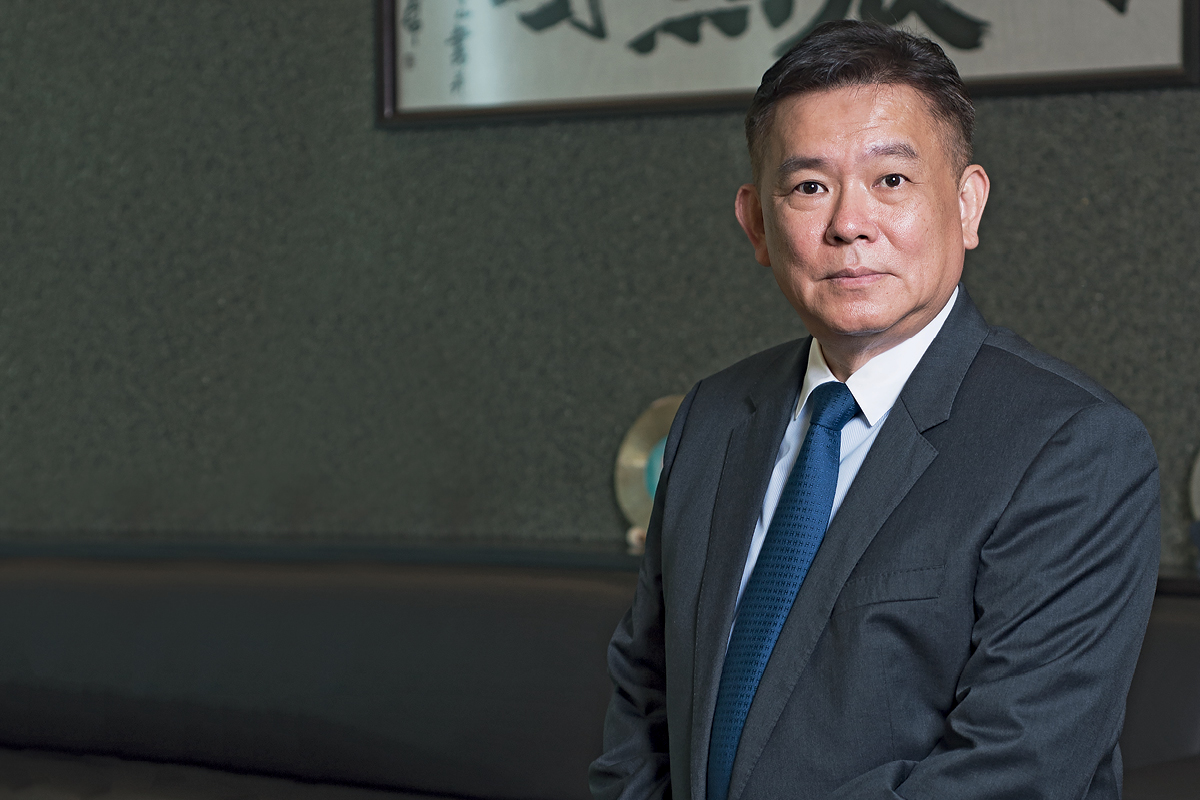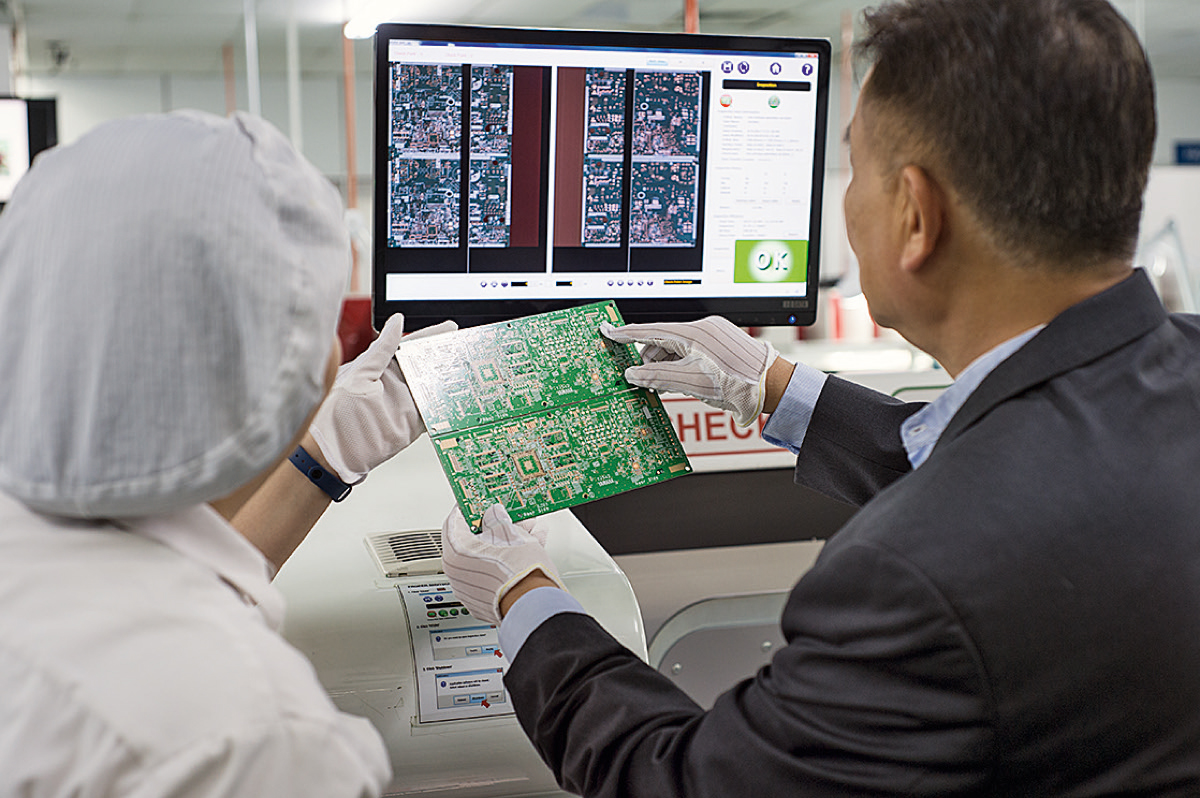Technology waits for no one: Kenneth H’ng Bak Tee
GUH CEO and GROUP Managing Director DATUK SERI Kenneth H’ng Bak Tee is eager to diversify its already healthy portfolio to advance Malaysia’s burgeoning education and healthcare segments.
Whether you’re at the top of your industry or at the start of your career, Datuk Seri Kenneth H’ng Bak Tee believes you should never take learning for granted.
"It doesn’t matter how old you are or at what stage of your career you’re at, you should take every day as an opportunity to listen and to learn," he notes. With qualifications in computer science, management and financial planning, Kenneth began his career with IBM in Kuala Lumpur, Malaysia. "After two years there, I was posted to IBM’s Hong Kong headquarters, where I worked with the Group’s competitive analysis segment in almost every country in the Asia–Pacific region – all the way from Australia and New Zealand up to Taiwan and Korea."

In 1989, Kenneth returned to Malaysia to join Leader Universal Holdings, where he climbed the ranks from Deputy General Manager to Managing Director. Kenneth was appointed CEO and Group Managing Director of GUH Group in 2004, and continues to serve as a director of all the Group’s subsidiaries and several other private limited companies.
When Kenneth first came on board, he noticed a distinct cultural difference. "In many Malaysian organisations, it’s common for one person to handle almost everything in the company – they’re both the boss and the worker. On the other hand, I learned the Western way of doing business, where tasks are delegated and new employees receive generous coaching and training until they’re capable of working independently," he explains. "At GUH, we now have first-tier and second-tier managers who teach their subordinates and guide them, because eventually they may be the ones leading and growing the business. We’re very much about delegation and teamwork."
Established in 1961, GUH Group spreads its assets across three core businesses: electronic, property development, and utilities. The electronic division is principally engaged in the manufacturing and sales of printed circuit boards catering to several industries, including audio and visual communications, computing, automotive, construction, and consumer products such as home appliances.
Meanwhile, GUH’s properties division is actively involved in its flagship development of Taman Bukit Kepayang, a well-mixed township in Seremban, Sungai Bakap, Simpang Ampat and Sungai Petani, comprising mid-level to high-end residential units, commercial space and industrial lots. The division also supplies a range of products for the construction industry, from paints to electrical goods and appliances, and building materials like tiles and frames for doors and windows. The Group’s wholly owned subsidiary Teknoserv Engineering, which was acquired in 2012, looks after its utilities division, which involves water and sewage treatment solutions including design, procurement, construction and commissioning.

In running such a multifaceted business, Kenneth is faced with varying challenges across each industry. "In our core printed circuit board business, the greatest challenge we face is the rapid pace of technological change. Technology waits for no-one so we have to try to keep up. We are always looking to outsmart our competitors and stay at least one step ahead. Today, we are the largest printed circuit board business in Malaysia, so our smaller competitors are far from our level of technological advancement and turnover," he beams.
In GUH’s property business, Kenneth says the Malaysian market continues to rise and fall around political unrest. "This causes great concern among foreign investors because they obviously want a stable environment, and it affects the ability of developers and purchasers to borrow money from the banks," he notes. "In the water and sewage treatment sector, it is very difficult to lobby for a common contract – even though you might be the most qualified for the job. You need to be very competitive," he says.
Datuk Seri Kenneth H’ng Bak Tee’s best piece of advice
"Setting and achieving targets is a practice that motivates me to work harder. These targets are constantly moving and once they are achieved, you move onto the next one. Without direction, life is meaningless."
A diverse future
In order to succeed in three very different but equally challenging industries, Kenneth says it’s crucial to remain aware of changing market conditions. "I’m proud to have been involved in the revival of this company, nurturing it to become a systematic, collaborative and profitable company, but the battle is not over," he says. "It’s difficult to determine whether an industry might last 10, 20, or even 30 years. So, we have to look at past trends as well as what’s happening now and what could happen in the future." He adds, "It’s not only about know-how, it’s also about timing and implementation at the right stage."
"It’s not only about know-how, it’s also about timing and IMPLEMENTation AT THE RIGHT STAGE."
Realising that diversification is key to success, in 2016, GUH ventured into the education sector by acquiring 25% equity interest in international school operator Straits International Education Group (SIEG). GUH also purchased 1.2 hectares of land in Rawang, Selangor, where it put up buildings for an international school that was leased to SIEG, whose Rawang school recorded its first student intake in Q4 2018.
"We see education as an important part of Malaysia’s future. Currently, a majority of public schools still teach all lessons in Malay. This makes it difficult for those who then go overseas to study or work because they don’t have core knowledge of the English language," Kenneth explains. "This is what we are focusing on in our international schools."
GUH has also identified Malaysia’s healthcare sector as an area in need of further development. "The cost of healthcare is constantly rising, insurance is covering less and less and waiting times at general hospitals have increased from hours to sometimes days," Kenneth explains. "In Malaysia, unless we go to a general hospital, we have to pay for our medical care. What we observe is that many doctors are leaving general hospitals for private hospitals because the pay is better, meaning most people are not getting the highest standard of care.
Further, the ageing population is increasing and more people are conscious about wellness. Therefore, I see health care playing a strong role in GUH’s future because there’s undoubtedly great potential in this sector."